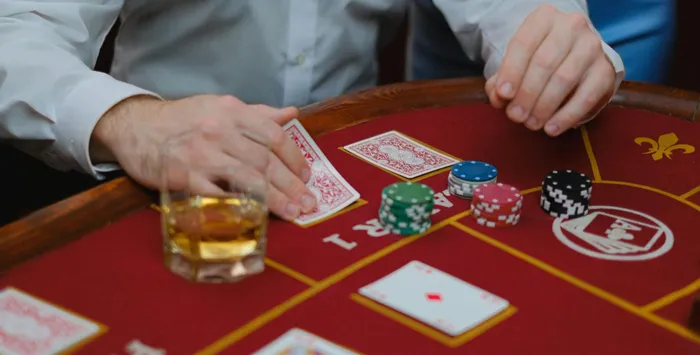The fine line between fun and addiction
Addiction

South Africans are believed to gamble over R1 trillion per year, said the writer.
Image: File
GAMBLING appears to be a popular form of recreation, especially among the Indian community. While for many, a trip to the casino or sports betting may start out as fun, this can gradually turn into an addiction for some – leading to financial stress, family conflict and even mental health issues.
Gambling addiction, also referred to as Gambling Disorder, is recognised as a behavioural addiction in the DSM-5 (The Diagnostic and Statistical Manual of Mental Disorders). Similar to substance additions, it involves repeated, problematic behaviour, despite negative consequences.
To understand it simply, gambling addiction involves our brain’s "reward system". When someone wins, dopamine (a feel-good chemical) is released, reinforcing the behaviour. Over time, gamblers start chasing the "high" of winning.
While traditional casinos remain popular, gambling today takes many forms, such as casino games, sports betting, online gambling or apps, lotteries and informal community-based betting. Online platforms have made gambling very accessible due to the ease of access. South Africans are believed to gamble over R1 trillion per year.
Risk factors for gambling addiction
- Family history of addiction.
- High levels of stress or untreated mental health conditions.
- Impulsive or risk-taking personality traits.
- Easy access to gambling platforms.
- Social pressure or cultural norms around gambling.
Signs that may suggest you or a loved one has a gambling problem
- Gambling more than planned or lying about gambling habits.
- Spending more money to recover from losses.
- Borrowing or stealing to fund gambling.
- Becoming irritable or anxious when trying to stop.
- Neglecting work, family or other responsibilities.
- Gambling as a way to escape emotional pain.
Gambling addiction is often called a hidden addiction because there are no obvious physical signs. However, the emotional and financial damage can be severe.
How to gamble responsibly
- Set a budget: decide in advance how much you are willing to lose.
- Limit your time: set a reasonable time limit and be mindful of the time.
- Never chase losses: gambling means that losing is inevitable.
- Accept losses as part of the territory.
- Don’t gamble when stressed: emotions can cloud judgement.
- Avoid gambling with credit: don’t use loans or borrowed money.
- Take frequent breaks: plan other activities around your gambling – like a meal or a walk.
Keep it social, not secretive: let your loved ones know about your gambling.
What to do if there is a problem
- Reach out for professional help, either by seeing a psychologist or a free counselling service.
- The Responsible Gambling Helpline is available 24/7 – 0800 006 008.
- Self-banning: most casinos and platforms offer the option to ban yourself for a period of time.
- Use technology, such as apps to block access to gambling websites.
- Talk to a loved one.
While gambling is not inherently harmful, it can easily spiral into addiction, especially if it becomes a way to escape difficult emotions. As with any addictive behaviour, awareness is always the first line of defence. When one is mindful, has healthy boundaries and has other healthy pastimes, gambling can remain recreational and not a source of harm.

Rakhi Beekrum
Image: Supplied
Rakhi Beekrum is a counselling psychologist in Durban North with more than 16 years’ experience in individual and couples therapy. Her expert advice has been featured in print and digital media, on radio and television. She uses her social media platforms to spread mental health.